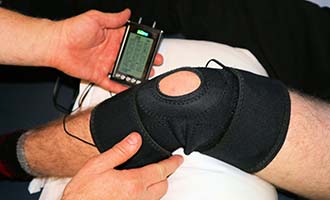What is a Health Care Service Provider?
In the complex world of healthcare, the term "health care service provider" is used frequently

In the complex world of healthcare, the term "health care service provider" is used frequently, but what exactly does it mean? Understanding this term is essential for navigating the healthcare system and making informed decisions about your well-being.
Defining a Health Care Service Provider:
A health care service provider is any individual or organization that delivers health-related services to individuals and communities. This encompasses a broad spectrum of professionals and entities, all dedicated to maintaining, improving, or restoring health.
Types of Health Care Service Providers:
The healthcare landscape includes various types of providers, each with specialized roles:
Physicians (Doctors): Medical doctors (MDs) and doctors of osteopathic medicine (DOs) diagnose and treat illnesses and injuries. They can be general practitioners or specialists.
Hospitals: Facilities that provide inpatient and outpatient medical care, including surgical procedures, emergency services, and diagnostic testing.
Clinics: Outpatient facilities that offer a range of medical services, often focusing on primary care or specialized areas.
Nursing Homes/Skilled Nursing Facilities: Facilities that provide long-term care and medical supervision for individuals with chronic illnesses or disabilities.
Home Health Agencies: Organizations that provide healthcare services in patients' homes, including nursing care, therapy, and personal care.
Therapists: Professionals such as physical therapists, occupational therapists, and speech therapists who help individuals recover from injuries or illnesses and improve their function.
Mental Health Professionals: Psychiatrists, psychologists, and counselors who provide mental health services.
Dentists and Dental Hygienists: Professionals who provide oral health care.
Pharmacists: Professionals who dispense medications and provide information about drug interactions and side effects.
Allied Health Professionals: Including medical technologists, radiologic technologists, and other professionals who support the delivery of healthcare services.
Caregiver Agencies: Provide non medical assistance for daily living, and companions.
The Role of Health Care Service Providers:
Health care service providers play a vital role in:
Preventing Illness: Through vaccinations, screenings, and health education.
Diagnosing and Treating Illnesses and Injuries: Providing medical care to restore health.
Managing Chronic Conditions: Helping individuals manage long-term health conditions.
Promoting Wellness: Encouraging healthy lifestyle choices.
Providing Rehabilitation: Assisting individuals in recovering from injuries or illnesses.
Offering Palliative Care: Providing comfort and support to individuals with terminal illnesses.
Choosing a Health Care Service Provider:
Selecting the right health care service provider is a crucial decision. Consider factors such as:
Your Specific Needs: What type of care do you require?
The Provider's Qualifications and Experience: Are they licensed and certified?
Your Insurance Coverage: Does the provider accept your insurance plan?
The Provider's Location and Availability: Is the provider conveniently located and available when you need them?
Your Personal Preferences: Do you feel comfortable with the provider's communication style and approach to care?
The Importance of a Strong Patient-Provider Relationship:
A strong patient-provider relationship is essential for effective healthcare. Open communication, trust, and mutual respect are crucial for ensuring that you receive the best possible care.
Conclusion:
Health care service providers are essential partners in maintaining and improving your health. Understanding their roles and responsibilities can help you navigate the healthcare system and make informed decisions about your care.
Related
-

Detailed Guide On Best Elder Care Services in Mumbai
-

The benefits of elder care services
-

Insurance is key to inclusion
-

What Is an Adapted Vehicle? How to Book Accessible Transport in Mumbai
-

Cost of Caretaker Services in Mumbai: What to Expect in 2025?
-

A Guide to Choosing the Right Handicapped Equipment for Your Needs
-

Elderly Care Services Offered by Modern Health Providers
-

Tips to Find the Best Healthcare Provider Partners in Mumbai
-

Top Emergency Apps Every Disabled Person Should Have
-

Breaking Barriers: Why Urban Spaces Must Be More Wheelchair-Friendly
-

Top 3 Types of Wheelchairs with Built-In Toilet Seats: Enhancing Dignity and Convenience
-

How to keep going with limited mobility
-

Step into healthy living
-

Senior care top tips
-

How Assistive Technology is Transforming Mobility Independence
-

How to Choose the Right Mobility Chair for Seniors in Mumbai
-

Rehab: The road to recovery
-

A Comprehensive Guide to Buying Mobility Products for Seniors in India
-

Folding vs Non-Folding Electric Wheelchairs: Which One Should You Buy
-

Tips for Buying the Best Mobility Equipment for Your Needs
-

The benefits of community care
-

Smart Home Care Equipment for Seniors That Make Life Easier
-

Apps that keep you healthy
-

Tips for Choosing the Right Health Service Provider
-

The Ultimate Guide to Wheelchair Accessories: Boost Your Independence Today
-

How to Choose Reliable Elder Care Assistance Providers
-

The Pros and Cons of Buying an Electric Wheelchair Online
-

The Essential Guide to Finding the Best Patient Care Taker in Mumbai
-

Smart Tips to Buy a Folding Electric Wheelchair Online
-

Elder Care Services in Mumbai: Comparing In-Home Care vs. Assisted Living Option
-

Advancements in Treatment and Care for Spina Bifida: What You Need to Know
-

A Guide to Buy Mobility Equipment Online
-

Apps that simplify life
-

What Makes a Great Support Companion? A Peek Into MobiCrews Training and Ethos
-

How to Choose the Right Caretaker Agency in Mumbai
-

Adapt your vehicle
-

Caregiver Services for Post-Surgery Recovery in Mumbai
-

Celebrating Carers Week : The Unsung Heroes Behind Every Confident Step
-

Enhancing Quality of Life
-

Choose your wheelchair well
-

Different Types of Home Health Care Services in India
-

Dont stop moving!
-

Tips to Select the Best Caretaker Services in Mumbai
-

What do companion caregivers do?
-

Best Online Stores to Buy Disability Equipment in Mumbai
-

Buy Vissco Commode Wheelchair Online: Features, Benefits and Best Deals
-

Navigating Mumbai with Ease: Your Guide to Reliable Mobility and Elder Care Solutions
-

Tech that makes life better
-

Mobility aids to the rescue
-

Who make for ideal caregivers?
-

Dealing with the odds
-

A Complete Guide to Wheelchair Types and Their Prices in India
-

Top 10 Electric Wheelchairs to Buy Online in India: 2025 Edition
-

Apps make caregiving easier
-

How to Choose the Right Health Service Provider for Your Needs
-

Best Physical Therapists in Mumbai For Home Treatment









